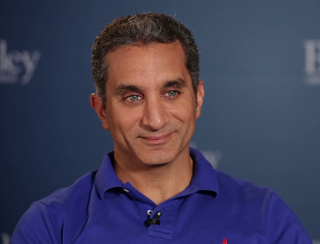A Quote by Condoleezza Rice
Democratic openings that come about in that way - the overthrow of a totalitarian government by external powers - it makes it really hard to make those first steps toward democracy.
Related Quotes
If you have reservations about the system and want to change it, the democratic argument goes, do so within the system: put yourself forward as a candidate for political office, subject yourself to the scrutiny and the vote of fellow citizens. Democracy does not allow for politics outside the democratic system. In this sense, democracy is totalitarian.
Education in democracy must be carried on within the Party so that members can understand the meaning of democratic life, the meaning of the relationship between democracy and centralism, and the way in which democratic centralism should be put into practice. Only in this way can we really extend democracy within the Party and at the same time avoid ultra-democracy and the laissez-faire that destroys discipline.
The British government had not engaged in any serious actual oppression of the colonies before 1774, but it had claimed powers not granted by the governed, powers that made oppression possible, powers that it began to exercise in 1774 in response to colonial denial of them. The Revolution came about not to overthrow tyranny, but to prevent it.
What we call the market is really a democratic process involving millions, and in some markets billions, of people making personal decisions that express their preferences. When you hear someone say that he doesn't trust the market, and wants to replace it with government edicts, he's really calling for a switch from a democratic process to a totalitarian one.
I think some people have blind faith in American institutions without knowing a whole lot about them and think they will stand up to Donald Trump and are indestructible. I actually think democracy is not a definable and achievable state. Any country is either becoming more democratic or less democratic. I think the United States hasn't tended to its journey toward democracy in a long time. It's been becoming less democratic, and right now it's in danger of becoming drastically less democratic.
The devotion of democracy to education is a familiar fact. The superficial explanation is that a government resting upon popular suffrage cannot be successful unless those who elect and who obey their governors are educated. Since a democratic society repudiates the principle of external authority, it must find a substitute in voluntary disposition and interest; these can be created only by education.
Through systematic terror, through indoctrination, through systematic manipulation of stimulus, reward, and punishment, we can today break man and convert him into brute animal... The first step toward survival is therefore to make government legitimate again by attempting to deprive it of these powers... by international action to ban such powers.
Certainly, if we believe in democracy and democratic systems, when [Benazir Bhutto] failed to pass any legislation, really, at all in her first two years in government during her first term and in fact had a tenure that was marked not only by gross corruption but by human rights abuses, that should have been a time for people to say, "Well, OK, we've given you an opportunity and you haven't bettered the institutions, you haven't strengthened the democratic cause - we may not vote you back."
When the Founders thought of democracy, they saw democracy in the political sphere - a sphere strictly limited by the Constitution's well-defined and enumerated powers given the federal government. Substituting democratic decision making for what should be private decision making is nothing less than tyranny dressed up.
To oppose the policies of a government does not mean you are against the country or the people that the government supposedly represents. Such opposition should be called what it really is: democracy, or democratic dissent, or having a critical perspective about what your leaders are doing. Either we have the right to democratic dissent and criticism of these policies or we all lie down and let the leader, the Fuhrer, do what is best, while we follow uncritically, and obey whatever he commands. That's just what the Germans did with Hitler, and look where it got them.











































